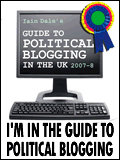LONDON (Reuters) - Inflation tumbled below the Bank of England's 2 percent target in July for the first time in more than a year as supermarkets slashed prices, triggering speculation that borrowing costs have peaked.
The unexpectedly sharp fall drove the pound below $2 for the first time in nearly two months and interest rate futures leapt as investors bet the Bank's five rate hikes since last August would be enough to keep prices under control.
Official data showed consumer price inflation fell to 1.9 percent last month, its lowest since March 2006. That compared with a rate of 2.4 percent in June and stunned analysts who had expected only a modest easing to 2.3 percent.
Policymakers had expected inflation to fall sharply this year, but even they may have been surprised.
Forecasts published by the central bank only last week showed it did not expect inflation to return to target until late next year at the earliest and signalled rates might need to go up to 6 percent to bring inflation back to target in the medium term.
"This will undoubtedly take the wind out of the sails of the Monetary Policy Committee hawks, and will boost expectations that interest rates have peaked," said Howard Archer, economist at Global Insight.
Those economists who still see rates going up hurriedly pushed back their expectations for the timing of that move, especially given recent turmoil on financial markets.
Other measures of inflation have also weakened sharply. Retail price inflation eased more than expected to 3.8 percent in July from 4.4 percent, reaching its lowest since last October.
House price inflation is also looking subdued, according to a survey by the Royal Institution of Chartered Surveyors, while data on Monday showed manufacturers' costs unexpectedly fell last month.
PRICE WARS
Tuesday's data from the Office for National Statistics showed consumer prices fell 0.6 percent last month, as a supermarket price war drove down the cost of food and drink to shave 0.2 percentage points off the annual rate of inflation.
Furniture prices had a large downward effect, reversing a sharp increase in June, and weaker fuel price growth also helped.
However, some analysts warned it was too early to sound the all-clear on inflation and a further rise in rates to 6 percent by the end of this year was still likely, given the strong economy and the risk of a resurgence in food price inflation.
Torrential rainfall this summer has ravaged crops, which, along with strengthening global demand for food, threatens to propel food prices in the coming months.
The ONS also said wet weather threatened supplies of vegetables such as cabbage, cauliflower, broccoli, brussels sprouts and peas in the run-up to Christmas. Milk prices were also expected to increase as a result of recent flooding.
"With growth still robust and inflation likely to bounce back, we still see UK rates hitting 6 percent by the end of the year," said James Knightley, economist at ING.
A brief respite for the British economy and consumers, but the rate of inflation is still volatile thanks to cumbersome socialist regulation, a bloated public sector funded by oppressive rates of taxation and McStalin's massaging of the maths.









No comments:
Post a Comment